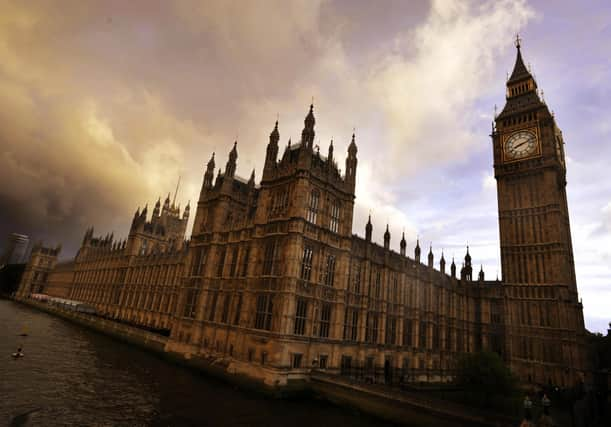Behind the scenes: what does your MP do?


With MPs back in the House of Commons following the Easter break, we take a look at what contribution James Murray makes to Parliament.
In the second of this series, analysis of figures from the House of Commons Library shows some of the work that the Labour (Co-op) MP for Ealing North does behind the scenes.
Advertisement
Hide AdAdvertisement
Hide AdMuch of the day-to-day business of being an MP takes place in committees, which examine issues in detail, from government policy and proposed new laws, to wider topics like the economy.
James Murray, who has an opposition role, was sitting on two committees, as of March 7 this year.
These were the Finance (No.2) Bill and National Insurance Contributions Bill.
The average sitting MP was also a part of two committees, while around a quarter were not part of any.
Meanwhile, two Labour MPs were members of 11 each.
Advertisement
Hide AdAdvertisement
Hide AdMembers can also be active in informal, cross-party All-Party Parliamentary Groups, for those who share a common interest in a particular policy area, region or country.
Mr Murray, 38, had a role in two APPGs – the All-Party Parliamentary Group for Armenia and All-Party Parliamentary Group for Council Housing.
The vast majority of bills that the House passes into law come from the ruling party, but MPs – typically those not in Government – can also introduce legislation through Private Members' bills.
Very few of them become law but it can create publicity around an issue, or affect future legislation indirectly.
Advertisement
Hide AdAdvertisement
Hide AdJames Murray presented none of these bills between the state opening of Parliament on December 16 2019 and March 7.
The same was true for the majority of his parliamentary colleagues.
Over this period, he has signed 21 Early Day Motions – which are another way an MP can draw attention to a particular issue, though they rarely result in any action being taken.
MPs can also bring forward petitions, calling for Government action, on behalf of their constituents – but James Murray has not presented any.
Advertisement
Hide AdAdvertisement
Hide AdFinally, Members can apply for certain types of debates or Urgent Questions to initiate discussions on a topic in the Commons or Westminster Hall.
James Murray has been granted one of these applications during this Parliament.
John O'Connell, chief executive of the TaxPayers' Alliance, said: "These figures give taxpayers some much-needed insight into the workloads of their Westminster representatives.
"Given the average MP now costs over £200,000 in total, constituents are right to expect them to deliver on their duties.
Advertisement
Hide AdAdvertisement
Hide Ad"It's up to the electorate to decide if parliamentarians are earning their keep."
The Institute for Public Policy Research said the essence of democracy is MPs linking citizens to policymaking.
But Dr Parth Patel, research fellow at the think tank, said their research shows that the vast majority of citizens no longer believe they have the most sway over policy decisions made by their representatives, and that trust in MPs is nosediving.
"We need an active and empowered Parliament, with MPs on all sides of the house able to speak their minds and act in the interests of their constituents.
"When participating in debates, MPs must remember to put citizens at the heart of everything they do and say in their name."